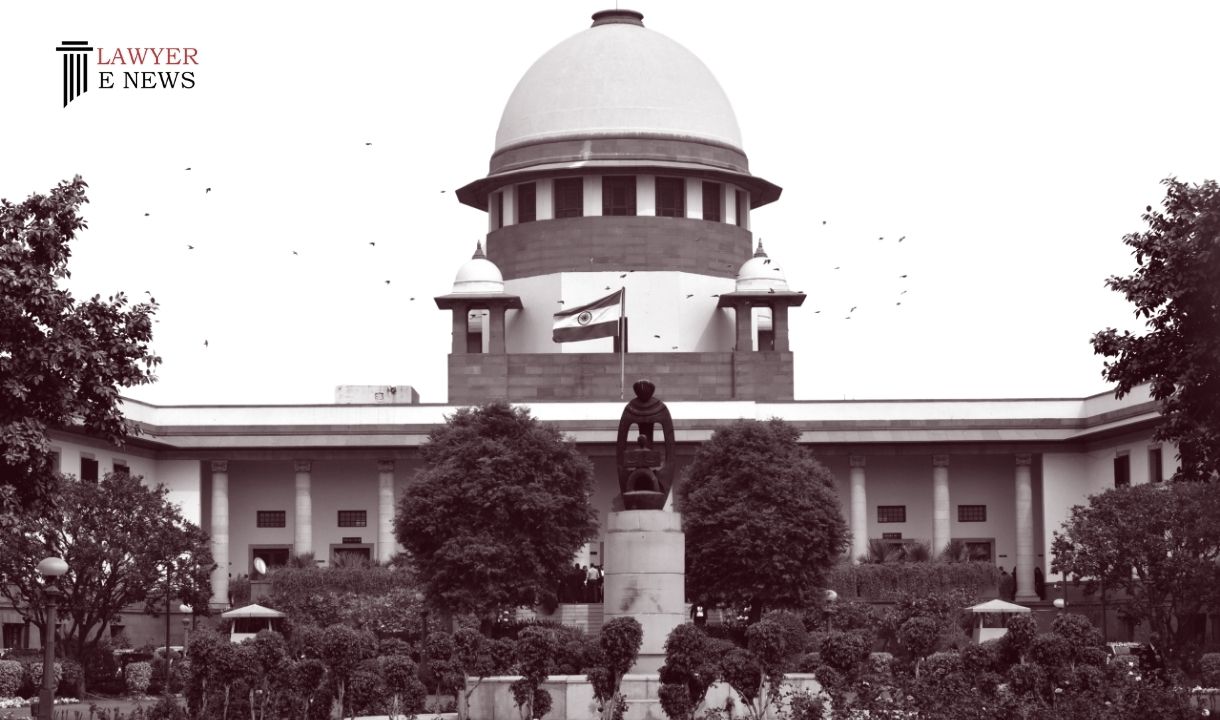-
by sayum
14 February 2026 2:22 PM



The Supreme Court of India has upheld the power of the State of Rajasthan to levy and collect stamp duty on insurance policies issued within its territory. This landmark decision, delivered by a bench comprising Justices Pamidighantam Sri Narasimha and Aravind Kumar, emphasizes the state's legislative competence under the Rajasthan Stamp Law (Adaptation) Act, 1952. The judgment clarifies the interplay between state and central legislative powers regarding stamp duty, offering significant insights into the constitutional distribution of taxation authority.
The case originated from the Life Insurance Corporation of India's (LIC) issuance of various insurance policies in Rajasthan between 1993-94 and 2001-02. During this period, LIC was required to affix stamps by paying stamp duty on these policies in accordance with the Indian Stamp Act, 1899, as adapted by the Rajasthan Stamp Law (Adaptation) Act, 1952. However, due to the non-availability of specific stamps in Rajasthan, LIC purchased the necessary stamps from Maharashtra. This led the Rajasthan government to issue orders demanding payment of stamp duty, which LIC challenged, arguing that the state lacked the legislative competence to impose such a duty.
The Supreme Court underscored that the State of Rajasthan has the legislative competence to levy and collect stamp duty on insurance policies under Entry 44 of List III (Concurrent List) of the Constitution of India. The court highlighted that while the Parliament has exclusive power to prescribe the rate of stamp duty for instruments specified in Entry 91 of List I (Union List), states can legislate on the levy and collection of such duties. "The state legislature has the authority to impose and collect stamp duty on policies of insurance at the rate prescribed by the Parliament," the bench observed.
The court determined that the Rajasthan Stamp Law (Adaptation) Act, 1952, applies to the insurance policies issued between 1993-94 and 2001-02. The Rajasthan Stamp Act, 1998, which came into force on 27 May 2004, was deemed not applicable for the relevant period. The judgment noted, "The 1952 Act governs the imposition of stamp duty for the period in question, ensuring legal consistency and adherence to the statutory framework in force at the time."
Clarifying the payment mechanism under the 1952 Act and the Rajasthan Stamp Rules, 1955, the court stated that stamp duty must be paid to the state government, and stamps must be purchased from the state treasury. The court recognized the practical difficulties faced by the appellant, Life Insurance Corporation of India (LIC), due to the non-availability of Rajasthan-specific stamps, which led them to purchase stamps from Maharashtra.
The bench distinguished the present case from the VVS Rama Sharma v. State of UP judgment, noting, "The VVS Rama Sharma case pertained to a different legal context under the UP Stamp Rules framed under the Indian Stamp Act, 1899, without involving a state law with Presidential assent like the 1952 Act in Rajasthan." This differentiation highlighted the unique statutory provisions applicable in the current scenario.
While affirming the state's power to levy stamp duty, the court directed that the state government should not demand and collect stamp duty as per the disputed orders dated 16 September 2004, 16 October 2004, 11 October 2004, 1 November 2004, and 28 October 2004. The judgment acknowledged the administrative lapses and specific circumstances that led to the appellant's predicament.
Justice Pamidighantam Sri Narasimha remarked, "The power to levy stamp duty on all documents is concurrent under Entry 44 of List III. However, the power to prescribe the rate is with the Parliament for instruments specified in Entry 91 of List I. This judgment reaffirms the balance of legislative authority between the state and the Union, ensuring clarity in the imposition and collection of stamp duties."
The Supreme Court concluded by dismissing the appeals and affirming the judgment of the High Court dated 21 February 2011, while setting aside certain findings of the High Court. The court held that the Rajasthan Stamp Law (Adaptation) Act, 1952, applies to the period in question, upholding the state’s legislative competence to levy and collect stamp duty on insurance policies at the rate prescribed by the Parliament. The court directed the state government not to demand and collect stamp duty as per the orders dated 16 September 2004, 16 October 2004, 11 October 2004, 1 November 2004, and 28 October 2004, due to specific administrative lapses and circumstances.
Date of Decision: 30 April 2024
Life Insurance Corporation of India vs. The State of Rajasthan and Others
